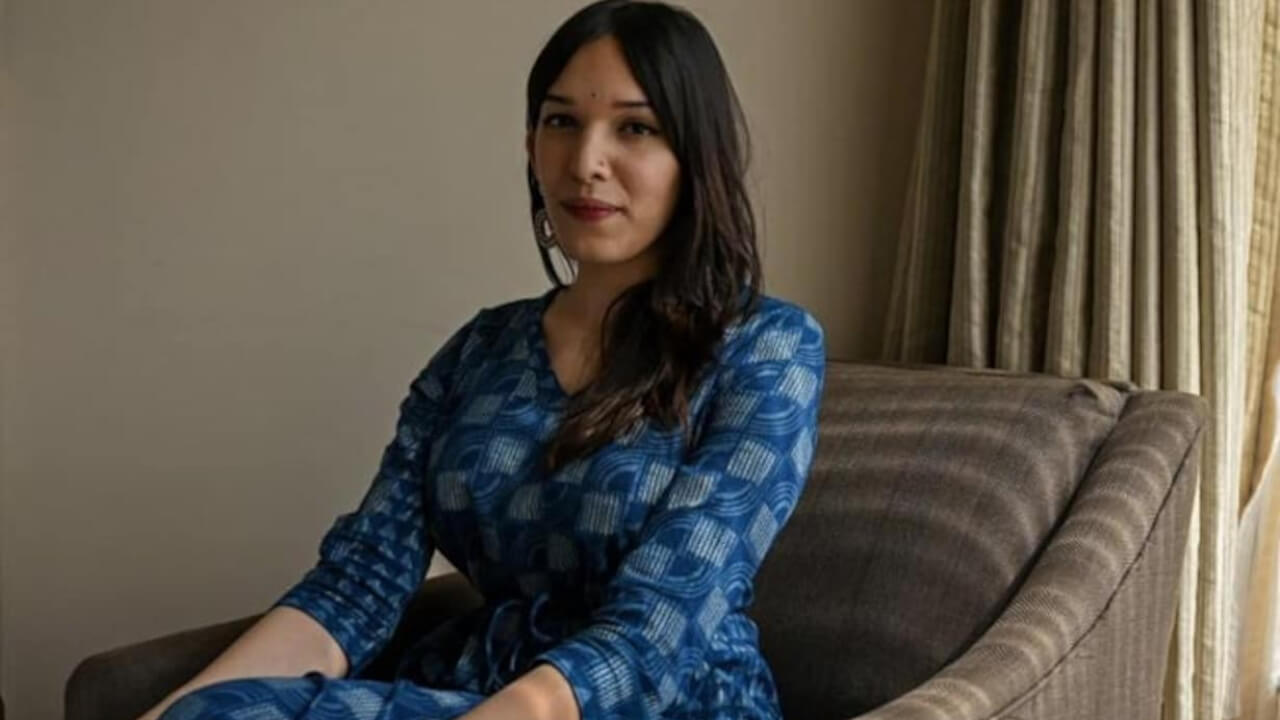How did you bag this prominent role for Meher on Made In Heaven 2?
It happened very much by chance that I was found on Instagram by the casting directors, Nandini and Karan, who were kind enough to show my profile to Zoya, who asked me to self test and then meet a month later that, and that would become my first visit to Bombay. And that’s where it began. I met Zoya, spoke about the character, and it seemed very clear from the get-go that she was very open to hearing me out on my lived experiences and also spoke to other trans women while writing this character of Meher. And I’m just glad that she saw something in me and trusted me with this part to do a good job of it. And I am eternally grateful for the opportunity.
Do you connect with Meher’s journey as a transgender?
I connect with Meher’s journey a lot. Meher and I have many similarities and many differences. We’re different in the sense that she’s older, she’s a lot more reserved, she has a certain quiet dignity to her in the way that she handles people, situations. I’m a lot more brazen. But we’re very similar also in the sense that we’ve both seen transphobia in the dating sphere. We’ve seen violence. We’ve been on the receiving end of violence, especially at the hands of men. And Meher and I also have a younger brother, that we have a healthy relationship with and healthy relationships with our parents, as much as it has been a journey, it is very much a healthy space now. So those are some of the similarities. And I entirely empathize with Meher despite some of those differences, because Meher is human first and trans later. And everything about her makes her relatable, despite her being trans, to a largely cis audience.
Did you use any of your own experiences to play Meher?
Of course. I was a terrible elder brother to my younger brother and I think it came largely from being bullied and projecting that on to my younger sibling which was extremely unfair to him. It’s taken years for us to try and build a relationship again. Like Meher, I do believe that I am a better sister.
What was it like working with the Made In Heaven team, especially Arjun, Shobhita and Shivani, who play your immediate co-stars?
It was absolutely wonderful. They were all very warm and welcoming. I was the youngest person. And it was a little intimidating in the beginning because it was a new world, and I come from a very different world, that is medicine. And that world demands very different things of the person and to be doing my internship and shooting at the same time, the entire show was shot, start to finish, during my internship. So it was mentally and physically exhausting to sort of shuffle back and forth from the hospital to the sets. But my co-actors, if anything, especially Neil, who plays Danish, my boyfriend on the show, made my life and job so much easier by just being very warm and welcoming throughout. So I just have immense gratitude to all of them.
What are your future plans?
My future plans for the time being involve taking a break from medicine. So I am very much looking forward to improving my skills as an actor and playing all kinds of characters, not necessarily trans only. But I definitely want to drive change and just improve representation of trans people in entertainment and diversify the kinds of stories that are told.
Sushmita Sen plays a trans character in Taali. What is your take on that?
Sushmita Sen is an absolute powerhouse of a performer. I have adored her and her grace since I was a child. And I really can’t speak for Shreegauri Sawant ji, because at the end of the day, the character is about, I mean Sushmita Sen plays the role of Gauri Sawant ji, and Gauri herself has been involved in the process of that story as far as I know. So I wouldn’t be the right person to comment on what Gauri ji should or should not feel about that portrayal, that’s a very personal thing. But in the bigger picture, at large, I would definitely say that more trans people need to be getting work.
How tough is it for you to normalise your life and career?
I think even the conversation about normalizing my specific life and career is a far cry from the reality of the vast majority of the community. Because the vast majority of community is extremely marginalized and survives largely on begging and sex work and badhai toli. And a good 98% of us don’t have familial acceptance and support. And I think normalizing trans people is still a step away when it comes to the vast majority of the trans community and we’re fighting very basic battles like literacy, health care, shelter, education, and employment. So of course, it’s difficult to normalize a trans person because very often depictions do revolve around caricature-ish portrayals of trans people and our lives are often reduced to surgical transitions and the violence and the blood and the gore. So we’re a far, far, far cry from normalizing trans people.


